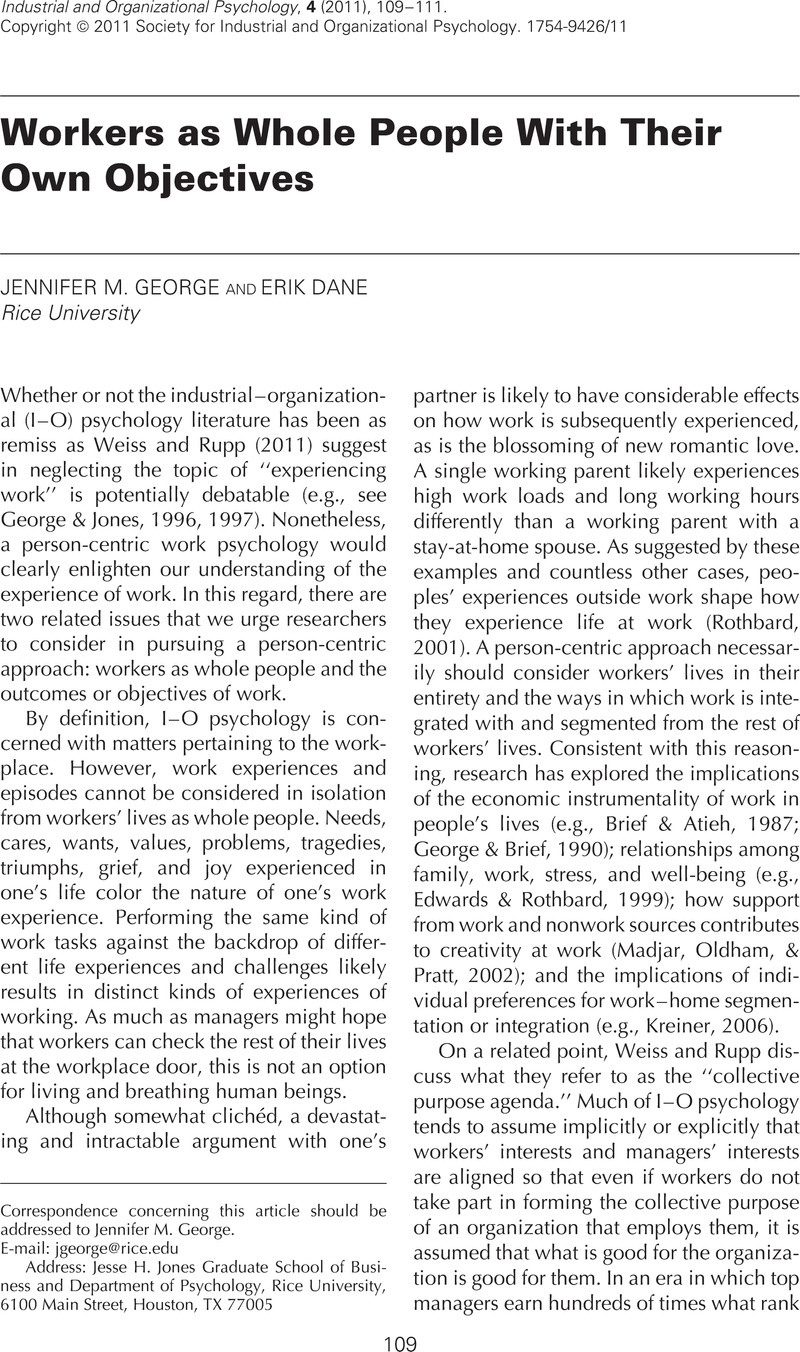Crossref Citations
This article has been cited by the following publications. This list is generated based on data provided by Crossref.
Weiss, Howard M.
and
Rupp, Deborah E.
2011.
Envisioning a Person-Centric Work Psychology.
Industrial and Organizational Psychology,
Vol. 4,
Issue. 1,
p.
138.
Dane, Erik
and
George, Jennifer M.
2014.
Unpacking Affective Forecasting and Its Ties to Project Work In Organizations.
Academy of Management Review,
Vol. 39,
Issue. 2,
p.
181.
George, Jennifer M.
and
Dane, Erik
2016.
Affect, emotion, and decision making.
Organizational Behavior and Human Decision Processes,
Vol. 136,
Issue. ,
p.
47.
Antoni, Anne
Reinecke, Juliane
and
Fotaki, Marianna
2020.
Caring or Not Caring for Coworkers? An Empirical Exploration of the Dilemma of Care Allocation in the Workplace.
Business Ethics Quarterly,
Vol. 30,
Issue. 4,
p.
447.





